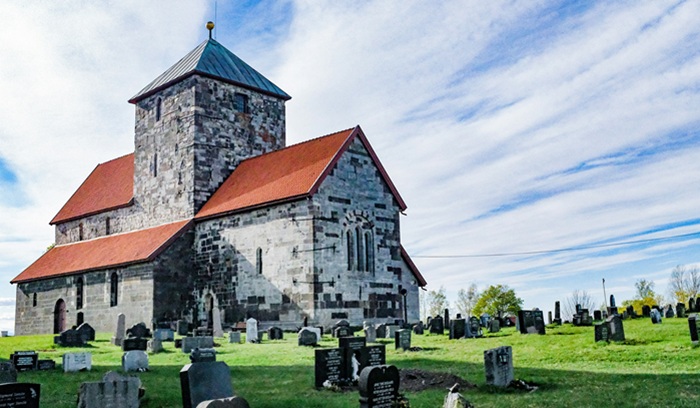The Church of Norway has achieved a major spiritual and human rights milestone by issuing a formal apology for its past mistreatment of LGBTQ+ people. This historic statement acknowledges decades of institutionalized discrimination and exclusion. This act of repentance is a profound step toward healing and reconciliation, signaling a new era of radical inclusivity.
This decision is the culmination of years of internal debate and sustained advocacy by progressive voices within the church. It affirms that the Church of Norway is committed to becoming a more welcoming and affirming spiritual home for all its members.
A Profound Act of Institutional Repentance
The core positive impact of the apology lies in its institutional recognition of harm. The church acknowledged that its teachings and practices historically contributed to the oppression of LGBTQ+ individuals. This formal admission validates the experiences of generations of faithful members who were marginalized or forced to leave their communities. The apology is an essential prerequisite for genuine healing and restoration of trust.
This act shifts the church’s focus from a stance of condemnation to one of compassion and understanding. It sets an important standard for other global religious bodies facing similar historical reckonings.
Part of a Global Wave of Reconciliation
The Church of Norway’s apology is part of a broader, positive global trend among major denominations. Over the last two decades, several international churches have undertaken similar acts of institutional repentance. For instance, the Episcopal Church in the United States and the United Church of Christ have issued apologies and taken significant steps toward full LGBTQ+ inclusion, including fully embracing marriage equality.
These coordinated efforts signal a hopeful shift within global Christianity toward greater alignment with human rights and equality. The apologies pave the way for healing deep, historical rifts and strengthening the faith community’s role in social justice. This collective movement demonstrates that spiritual traditions can evolve while remaining deeply rooted in compassion.
Strengthening Inclusivity and Faith
The formal apology strengthens the Church of Norway’s commitment to radical inclusivity. It ensures that LGBTQ+ members are now fully welcomed into all aspects of church life, including ordination and marriage rites. The Church of Norway had previously moved toward allowing same-sex marriage ceremonies in its churches, and this apology reinforces that legislative change with emotional and theological support.
This embrace of equality is vital for the spiritual health of the entire congregation. It allows the church to focus on its core mission of ministry and community support. By removing barriers to full participation, the church enhances its own resilience and relevance in a modern society. The Church of Norway’s official website provides statements regarding their recent changes to marriage policy.
A Model for Global Religious Dialogue
This public apology provides an inspiring model for other denominations and religious institutions worldwide. Many faith communities continue to grapple with reconciling traditional teachings with modern human rights and scientific understanding. The Church of Norway’s decision shows that theological evolution and faithfulness are not mutually exclusive concepts.
This action strengthens the church’s position as a progressive voice in international religious forums. It provides positive momentum for dialogue and reform in neighboring countries and within global religious bodies. The commitment to self-reflection sets a positive standard for institutional honesty regarding historical injustices.
Securing Well-being and Social Trust
The reconciliation between the church and the LGBTQ+ community delivers significant social benefits. For individuals of faith, the apology reduces the conflict between their spiritual identity and their sexual or gender identity. This validation is crucial for improving mental health and reducing social isolation. It promotes a sense of belonging for individuals who previously faced rejection from a foundational pillar of their culture.
The church’s commitment to transparency is a positive force for social trust nationwide. It strengthens the bonds between civic institutions and the public they serve. The Norwegian Institute of Public Health (NIPH) tracks the positive mental health impacts of social inclusion. The Norwegian government’s commitment to human rights is detailed on their official site. Furthermore, the global context of faith and sexuality is explored by the World Council of Churches.
Resources
- Church of Norway on Changes to Marriage Policy
- Norwegian Institute of Public Health (NIPH) on Social Inclusion and Health
- Norwegian Government on Human Rights Policy
- World Council of Churches on Faith and Human Sexuality
More Good News
-

Senegal launches all-electric bus network powered by renewable energy
Senegal has successfully launched a transformative Bus Rapid Transit system in Dakar, featuring a fleet of 121 fully electric buses. As the first network in Sub-Saharan Africa to operate entirely on renewable energy, the initiative utilizes local solar power to transport up to 300,000 passengers daily. By utilizing dedicated lanes, the clean energy fleet cuts cross-city commute times in half while preventing nearly 60,000 tons of carbon dioxide emissions annually. This monumental project dramatically improves urban air quality and establishes Senegal as a pioneering leader in sustainable, green public infrastructure.
-

Yangtze River showing remarkable ecological recovery following fishing ban
China’s Yangtze River is experiencing a remarkable ecological revival five years into a sweeping ten-year commercial fishing ban. Recent surveys reveal significant increases in overall fish biomass and the heartening return of critically endangered species in the world’s fifth largest river. Furthermore, thousands of former commercial fishers have been successfully transitioned into new roles as official river guardians. This massive conservation effort offers a hopeful, replicable model for global freshwater restoration.
-

Rob Jetten becomes The Netherland’s first openly gay prime minister
In a historic victory for representation and progressive politics, Rob Jetten has been sworn in as the first openly gay Prime Minister of the Netherlands. At 38 years old, the centrist Democrats 66 leader is also the youngest head of government in Dutch history. Jetten successfully formed a minority coalition government following a tense election that defeated far-right populist opponents. His platform prioritizes climate investment, economic fairness, and strong international collaboration. Jetten’s premiership powerfully reaffirms the Netherlands’ global legacy as a pioneer of LGBTQ+ equality and inclusive, cooperative democratic leadership.
-

Millions of New York City workers gain additional time off through new law
Millions of workers in New York City are benefiting from a major expansion of the Protected Time Off Law, which officially took effect in late February 2026. The progressive legislation grants employees an additional 32 hours of unpaid, protected leave that is available immediately upon hire or at the start of the calendar year. This ensures workers do not have to wait to accrue hours before addressing sudden medical emergencies or family crises. The law also vastly expands permitted uses to include mental health care, public disaster recovery, and caring for disabled loved ones.
-

Malaysia bans electronic waste imports to protect the environment and public health
In a monumental victory for public health and environmental justice, Malaysia has enacted an immediate and absolute ban on the importation of electronic waste. By removing regulatory loopholes and launching a strict enforcement campaign, the nation is successfully preventing toxic heavy metals from polluting its soil and waterways. Authorities have already intercepted hundreds of thousands of kilograms of illegal e-waste at major ports, vowing to return the hazardous materials to their countries of origin. This decisive action establishes Malaysia as a leading force in Southeast Asia’s growing movement to reject global waste and prioritize ecological sustainability.
